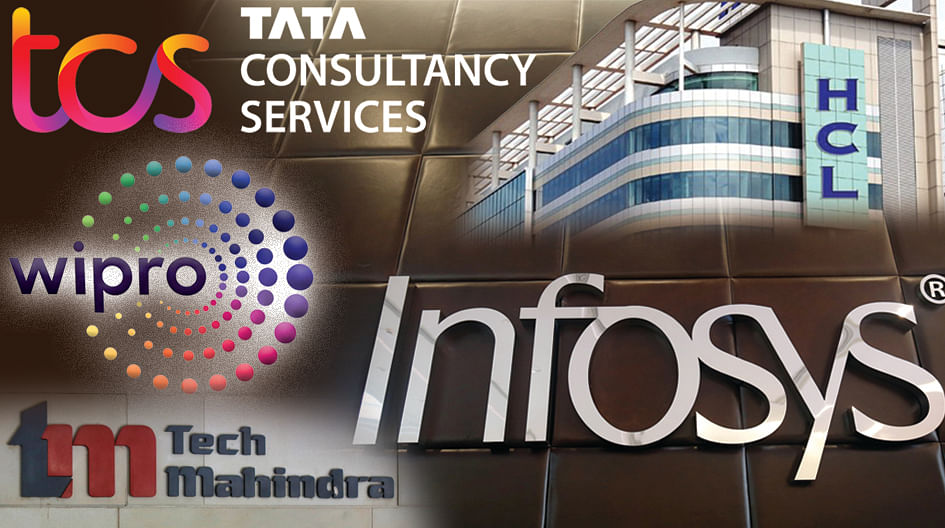
Bengaluru: Indian IT companies are doubling down on their AI efforts and betting big on staff training, hoping to benefit from being early movers in the next frontier for tech.
The top-5 homegrown IT companies – Infosys, Wipro, Tech Mahindra, TCS and HCLTech - have announced sizeable plans to impart AI training to over 4 lakh professionals, collectively. Of this, over 3.5 lakh have concluded their drills so far, data accessed by DH showed.
“As the levels of training get more sophisticated, we are creating training modules by service line and domain to ensure the specific needs of our clients – both internal and external – are met,” Wipro Chief Operating Officer Amit Choudhary told DH.
Till date, the IT services player has trained close to 2,00,000 of its employees in basic AI principles and more than 20,000 on advanced content, he shared.
“These IT bellwethers engaged in substantial hiring of lateral talent for senior positions - consulting and project management - in late 2021 and early 2022,” MS Prasadh, who heads research at specialist staffing company Xpheno, pointed out.
Presently, their focus is concentrated on training and upskilling of middle level employees, who constitute the largest chunk in their plans. On the other hand, “investment in fresher talent is on pause since 2 years, owing to margin pressures,” Prasadh highlighted.
While artificial intelligence and generative AI only grabbed serious global attention around this time last year, with the launch of OpenAI’s ChatGPT, Indian IT bellwethers have been actively investing in the technology for a decade now.
“Infosys has been working on AI for the last few years…With Infosys Topaz, we are offering enterprises a jumpstart with over 12,000 AI assets, over 150 pre-trained models, and more than 10 AI platforms,” the company’s Chief Technology Officer Mohammed Rafee Tarafdar told DH.
Similarly, Wipro’s AI focused platform - Wipro ai360- builds on the company’s decade-long investments in AI, Choudhary said.
With billions of dollars in investment - these companies have developed proprietary large language models and are deploying AI in products for their clients, as well as within the organisation.
“Current client applications tend to center around a few key themes - cognitive chatbots, content creation and optimisation for marketing and media, automation in code generation, and synthetic data generation,” Choudhary elaborated.
For Infosys, the most common use cases lie in eight broad areas - customer and advisory services, sales and marketing, business operations, IT operations, software engineering, contact center and help desk, risk and compliance, employee experience and learning.
The big picture
IT spending is no longer a discretionary avenue for companies, analysts said. Going forward, as an increasing number of companies deploy their plans in motion, IT companies are expected to see an uptick in AI-related deals in their overall order books.
"While AI-related deals may comprise as much as 25-30% of their order books next year, less than 2% of the clients are currently considering generative AI products. This aspect is likely to gradually pick up, starting FY25," Gartner analyst Biswajit Maity pointed out.
However, while the era of artificial intelligence appears to be at a nascent stage, the Indian IT industry has successfully secured an edge in the global AI race and is well prepared to address what comes next, others said.
“Indian IT services companies have a competitive advantage in the global landscape…these companies are well on track in terms of developing these capabilities and that’s why we have seen that they have already started seeing a fraction of their order booking on this front,” assistant vice president at ICRA, Deepak Jotwani said.
Going forward, companies will continue to invest in talent and may engage in small size acquisitions to add more layers to their offerings, he added.
However, even as stakeholders remain bullish on the potential of artificial intelligence to transform businesses, challenges remain. The pace at which the technology is developing isn’t making the task any easier.
Capital requirements, cybersecurity, increasing need for quality talent and regulatory grey areas stand out as other pain points. “An uncertain economic environment is creating an increased level of caution in investments,” Choudhary attested. Businesses on the other hand, are grappling with balancing their immediate needs and future goals.